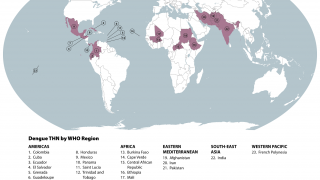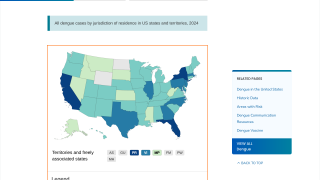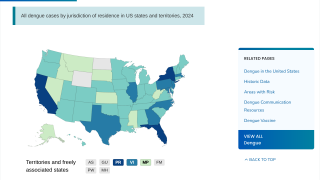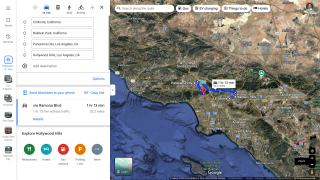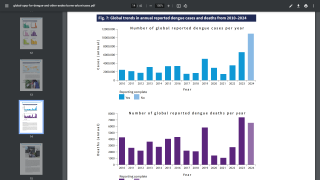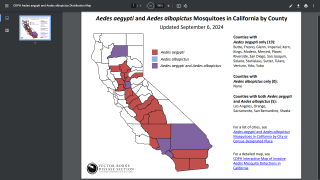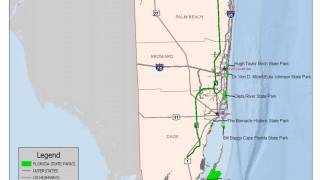Travel Alert Reissued Regarding Dengue Outbreaks

The US Centers for Disease Control and Prevention (CDC) has reissued a Level 1 Travel Alert regarding the ongoing Dengue Fever outbreak in various Asia and Pacific Island countries.
On October 30, 2019, the CDC said ‘travelers to Asia and the Pacific Islands can protect themselves from Dengue by preventing mosquito bites.’
Dengue is caused by a virus that has 4 different but closely-related serotypes. When a person recovers from the infection, he acquires lifelong immunity against that particular serotype.
Dengue is defined by a combination of at least 2 clinical findings in a febrile person, such as a positive tourniquet test, leukopenia, and the following warning signs: persistent vomiting, clinical fluid accumulation, mucosal bleeding, lethargy, restlessness, and liver enlargement.
Dengue can become severe within a few hours. Severe dengue is a medical emergency requiring immediate medical attention and usually requiring hospitalization.
Severe dengue is defined by dengue with any of the following symptoms: severe plasma leakage leading to shock or fluid accumulation with respiratory distress; severe bleeding; or severe organ impairment, such as elevated transaminases ≥1,000 IU/L, impaired consciousness, or heart impairment.
According to the CDC, there is limited data on health outcomes of Dengue in pregnancy and the effects of maternal infection on the developing fetus. And peripartum maternal infection may increase the likelihood of symptomatic infection in the newborn.
Previously, the Dengvaxia vaccine was approved by the US Food and Drug Administration (FDA) in the United States for use in children 9-16 years old living in an area where dengue is common, with laboratory-confirmed prior dengue virus infection.
The Dengvaxia vaccine manufacturer, Sanofi Pasteur, announced in 2017 that people who receive the vaccine and have not been previously infected with a dengue virus may be at risk of developing Severe Dengue if they get Dengue after being vaccinated.
The CDC says before being vaccinated with Dengvaxia, inform your healthcare provider if you have dengue symptoms or live in or have recently traveled to an area with risk of dengue.
A blood test is the only way to confirm a dengue diagnosis.
>> Order confidential blood tests <<
The countries listed below are reporting higher-than-usual numbers of Dengue cases, and travelers visiting these countries may have an increased health risk:
- Bangladesh
- Cook Islands
- Federated States of Micronesia (Yap State)
- French Polynesia (Tahiti, Bora Bora, Moorea, Nuku Hiva, Raiatea, Huahine, Rangiroa)
- Guam
- Marshall Islands (Ebeye, Majuro, Utrik)
- Nepal
- Pakistan
- Palau
- Philippines
- Singapore
- Sri Lanka
In the USA, as of October 2, 2019, there have been 614 dengue cases were reported to the CDC during 2019. The states of Florida and California have reported the most dengue cases.
And as of October 19, 2019, Florida’s Health Department has confirmed 289 travel-associated Dengue cases, with Cuba identified as a source for 180 cases.
Most importantly, Florida reported 12 cases of locally acquired Dengue fever in Broward, Hillsborough, and Miami-Dade counties in 2019.
Pre-travel vaccination counseling sessions can be scheduled at local pharmacies by Vax-Before-Travel.
Note: The CDC says any vaccine can cause side effects, which should be reported to a healthcare provider.
Dengue vaccine news published by Vax-Before-Travel
Our Trust Standards: Medical Advisory Committee


